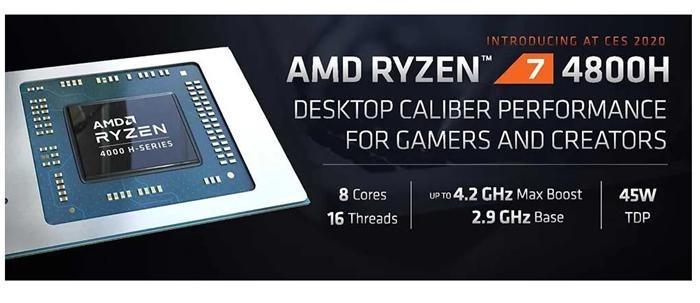AMD Ryzen 7 4800H, Ryzen 7 47800HS, Ryzen 9 4900H and Ryzen 9 4900HS have managed to fragment the Intel’s strategy by hitting just where it hurts: price / performance, occupancy of uncovered segments and high availability.

It is not enough just to arrive first, it is not enough to be the fastest, it is necessary to have a product that adapts to the market and users and AMD has achieved this with its 4 flagships.
Until now, Intel had nothing to answer between its already veteran i9-9980H and the i7-9750H, which is precisely where the smallest of the named Ryzen fits like a glove.
The knock on effect with the new i7-10875H is not a simple refreshment as such, not based on its first score in Geekbench 5. Although we do not know all its specifications currently, we can confirm that it will be an 8-core and 16-thread CPU at a base frequency of 2.3 GHz, so we are dealing with an i9-9980H, but instead, the differences should come with its boost.
And they must, since the new i7-10875H is 45% faster than its predecessor, since it has achieved a score of 1349 points in single core and 8369 points in multi core, while its veteran partner only managed 1207 and 5896 average points.
It could not be otherwise, and is that Intel needed a clear step forward to match or exceed AMD in this segment of entry to the high range, since the Ryzen 7 4800H achieves on average 1195 points and about 8343 points in the same test.
What seemed at first a refresh of the range of notebooks as such will end up being a headache for the hitherto clear dominator of the notebook market.
And it is that the strategy in this sector of AMD is clearly driving Intel crazy, to the point that it will have to cover the range with a new processor so that its rival does not win at ease and steals market share. The Intel Core i7-10875H arrives.
When you have been dominating the market for years and years, you may become lethargic, you can relax and with this your reaction capacity may not be the same.
This seems to be happening to Intel and its laptop processors, where until now it started with an even greater advantage than on desktop and AMD with Renoir has magically turned the tables on it. Will Intel’s reaction be late?
